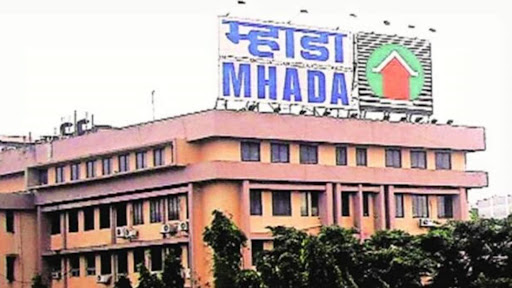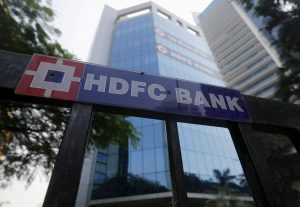MHADA Revises Premium Charges & Payment Terms to Boost Redevelopment in Mumbai

Mumbai Redevelopment Update – In a major policy shift aimed at making redevelopment of old housing societies more financially feasible, the Maharashtra Housing and Area Development Authority (MHADA) has introduced revisions to its 2007 redevelopment framework. The changes bring in a more balanced premium structure for commercial spaces and a phased installment system for premium payments, easing the burden on developers and housing societies.
Also Read: Apply Mhada Lottery 2025: Online Registration | Application | Lottery Dates
What Key Changes Has MHADA Introduced?
MHADA has made two critical revisions under **Regulation 33(5) of the Development Control and Promotion Regulations (DCPR) 2034):
-
Fairer Premium Calculation for Commercial Spaces
- Earlier, developers had to pay 1.5 times the residential rate for commercial built-up area—a system that many argued made redevelopment projects unviable.
- Under the revised policy, commercial premiums will now be calculated based on a formula that factors in land rates, market values, and usage type, ensuring a more equitable approach.
- This change was driven by consistent representations from CREDAI–MCHI, the apex real estate developers’ body, calling for parity between residential and commercial charges.
-
Staggered Premium Payment Structure
- Developers and societies can now pay premiums for additional built-up area in phased installments with interest, aligning with the Municipal Corporation of Greater Mumbai (MCGM)’s existing system.
- This allows stakeholders to manage cash flows better, accelerating project execution.
How Will the Installment System Work?
MHADA has provided clarity on the payment schedule, depending on the plot size:
- For plots below 4,000 sq. m:
- 10% of the premium is payable within one month of the Letter of Intent (LoI) issuance.
- The remaining premium can be cleared in four equal installments of 22.5% each at the end of 12, 24, 36, and 48 months (with interest).
- For plots 4,000 sq. m and above:
- 10% of the premium is payable within one month of the LoI issuance.
- The balance premium can be paid in five equal installments of 18% each at the end of 12, 24, 36, 48, and 60 months (with interest).
This structured flexibility is expected to make redevelopment projects far more manageable and attractive for developers.
Also Read: MHADA Lottery 2025: Over 5,000 Affordable Homes to Light Up Mumbai This Diwali
Why Is Redevelopment So Important in Mumbai?
Mumbai, with its aging housing stock—many buildings ranging between two to seven storeys—has a massive demand for redevelopment. The process involves:
- Demolishing old structures and replacing them with modern, larger towers.
- Existing residents receiving upgraded apartments at no cost.
- Builders earning profits by selling surplus flats in the open market.
- Government generating revenue through premiums and the sale of Floor Space Index (FSI).
What Are Premiums and Built-Up Area in Redevelopment?
- Premiums:
These are charges levied by authorities at various project stages—initiation, development, and completion. They include fungible FSI premiums, open space deficiency charges, lobby and staircase premiums, and more. In Mumbai, developers often pay 20+ types of premiums, which together make up 20–30% of total project cost.
- Built-Up Area:
This refers to the total usable area of a property, including internal and external wall thickness, balconies, and covered areas like terraces. It is always larger than the carpet area, which only measures the usable floor space inside a home.
Also Read: MHADA Konkan Lottery 2025: Apply Online | Registration | Fees
Why Do These Changes Matter for Developers and Homeowners?
- For Developers:
The reduced commercial premiums and installment-based payments make projects financially more viable, freeing up liquidity for faster execution.
- For Housing Societies:
Faster approvals and smoother project completion mean quicker access to modern, safe, and larger homes.
- For Mumbai’s Real Estate Market:
With redevelopment becoming more attractive, the city could witness a significant boost in supply of upgraded housing stock, benefiting both homebuyers and existing residents.
Final Word
MHADA’s policy shift is a big win for redevelopment in Mumbai. By easing commercial premium charges and offering phased payment flexibility, the authority is addressing long-standing demands from developers while simultaneously accelerating urban renewal for thousands of housing societies across the city.
Page Contents
Mumbai Redevelopment Update – In a major policy shift aimed at making redevelopment of old housing societies more financially feasible, the Maharashtra Housing and Area Development Authority (MHADA) has introduced revisions to its 2007 redevelopment framework. The changes bring in a more balanced premium structure for commercial spaces and a phased installment system for premium payments, easing the burden on developers and housing societies.
Also Read: Apply Mhada Lottery 2025: Online Registration | Application | Lottery Dates
What Key Changes Has MHADA Introduced?
MHADA has made two critical revisions under **Regulation 33(5) of the Development Control and Promotion Regulations (DCPR) 2034):
-
Fairer Premium Calculation for Commercial Spaces
- Earlier, developers had to pay 1.5 times the residential rate for commercial built-up area—a system that many argued made redevelopment projects unviable.
- Under the revised policy, commercial premiums will now be calculated based on a formula that factors in land rates, market values, and usage type, ensuring a more equitable approach.
- This change was driven by consistent representations from CREDAI–MCHI, the apex real estate developers’ body, calling for parity between residential and commercial charges.
-
Staggered Premium Payment Structure
- Developers and societies can now pay premiums for additional built-up area in phased installments with interest, aligning with the Municipal Corporation of Greater Mumbai (MCGM)’s existing system.
- This allows stakeholders to manage cash flows better, accelerating project execution.
How Will the Installment System Work?
MHADA has provided clarity on the payment schedule, depending on the plot size:
- For plots below 4,000 sq. m:
- 10% of the premium is payable within one month of the Letter of Intent (LoI) issuance.
- The remaining premium can be cleared in four equal installments of 22.5% each at the end of 12, 24, 36, and 48 months (with interest).
- For plots 4,000 sq. m and above:
- 10% of the premium is payable within one month of the LoI issuance.
- The balance premium can be paid in five equal installments of 18% each at the end of 12, 24, 36, 48, and 60 months (with interest).
This structured flexibility is expected to make redevelopment projects far more manageable and attractive for developers.
Also Read: MHADA Lottery 2025: Over 5,000 Affordable Homes to Light Up Mumbai This Diwali
Why Is Redevelopment So Important in Mumbai?
Mumbai, with its aging housing stock—many buildings ranging between two to seven storeys—has a massive demand for redevelopment. The process involves:
- Demolishing old structures and replacing them with modern, larger towers.
- Existing residents receiving upgraded apartments at no cost.
- Builders earning profits by selling surplus flats in the open market.
- Government generating revenue through premiums and the sale of Floor Space Index (FSI).
What Are Premiums and Built-Up Area in Redevelopment?
- Premiums:
These are charges levied by authorities at various project stages—initiation, development, and completion. They include fungible FSI premiums, open space deficiency charges, lobby and staircase premiums, and more. In Mumbai, developers often pay 20+ types of premiums, which together make up 20–30% of total project cost.
- Built-Up Area:
This refers to the total usable area of a property, including internal and external wall thickness, balconies, and covered areas like terraces. It is always larger than the carpet area, which only measures the usable floor space inside a home.
Also Read: MHADA Konkan Lottery 2025: Apply Online | Registration | Fees
Why Do These Changes Matter for Developers and Homeowners?
- For Developers:
The reduced commercial premiums and installment-based payments make projects financially more viable, freeing up liquidity for faster execution.
- For Housing Societies:
Faster approvals and smoother project completion mean quicker access to modern, safe, and larger homes.
- For Mumbai’s Real Estate Market:
With redevelopment becoming more attractive, the city could witness a significant boost in supply of upgraded housing stock, benefiting both homebuyers and existing residents.
Final Word
MHADA’s policy shift is a big win for redevelopment in Mumbai. By easing commercial premium charges and offering phased payment flexibility, the authority is addressing long-standing demands from developers while simultaneously accelerating urban renewal for thousands of housing societies across the city.

L. Sadriwala, the Editor-in-Chief at Housiey, is a seasoned writer whose professional journey in content creation began in 2015. With a background rooted in a family of real estate developers, her transition into real estate writing was a natural evolution, bringing together her storytelling expertise and deep industry understanding.
Over the years, she has authored impactful blogs across diverse niches such as food, travel, and lifestyle, before establishing her reputation as a trusted voice in Indian real estate. Today, her work stands out for its clarity, accuracy, and ability to simplify complex property concepts for readers.
At Housiey, every article crafted by L. Sadriwala reflects thorough research, verified facts, and a reader-first approach. From decoding housing policies and trends to offering in-depth builder reviews and project insights, her mission is clear: to empower homebuyers and investors with the knowledge they need to make confident property decisions.
Her writing not only informs but also builds trust, making her one of the most credible editorial voices in the real estate space.







